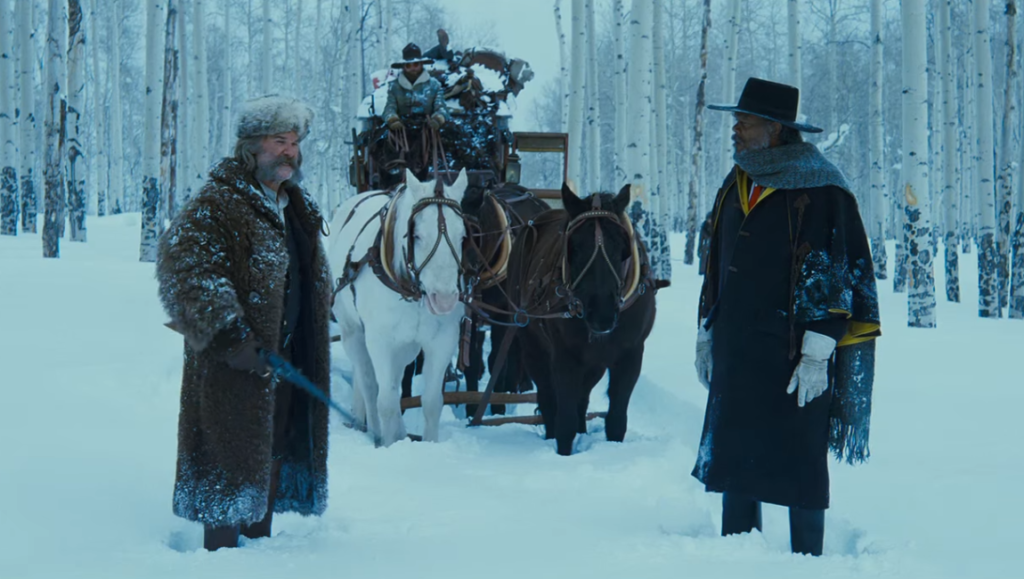The Hateful Eight often plays like a mean prank, and maybe that shouldn’t come as a surprise from Quentin Tarantino, who’s simultaneously one of the most powerful storytellers working and a self-indulgent loudmouth provocateur. This time he’s practically daring fans and detractors alike with a deliberately unpleasant (to say the least), violent-even-by-his standards Agatha Christie riff, at once an epic western throwback and a chamber piece mystery, where a group of seemingly the worst characters he could come up with deceive, poison, shoot, stab, and connive to determine the fate of a condemned woman whom most of them despise even more than they do each other. Only Tarantino would use crisp Ultra Panavision 70mm to shoot a single room. It’s as perverse a move as it is practical, with the super-wide compositions showcasing both expansive, snow-covered landscapes and letting minute performances and tiny little scenes play out in the corners of the frame. But then again, he’s always been fond of his games of meta-oneupmanship. Nobody thought the Basterds would kill Hitler either until of course they did.
There are no heroes and Tarantino offers the audience no moral comfort nor his characters any emotional catharsis.
It’s tempting to try to read all of The Hateful Eight as exploitation allegory for social tensions Americans often pretend don’t exist but, as we’re all becoming painfully aware once again, continue to fester. At one point a character even suggests that the blizzard-bound cabin currently sheltering a collection of murderers, rapists, thieves, and racists be divided between the northerners and the southerners. But Tarantino, maybe the greatest exploitation filmmaker ever, continually complicates (and frequently abandons) that allegory for his more mercenary instincts as a storyteller. After all, he’s also making a goddamn thriller, and no subtext or formal conceit, no representational handwringing or favorite character will get in the way of his bloody good time. If someone can be afforded an exciting, violent death, they will be. There are no heroes and he offers the audience no moral comfort nor his characters any emotional catharsis. Their violence is intrinsically thrilling and just as intrinsically terrible, and the movie’s final, devastating moments don’t return us to the safety of allegedly more enlightened times. After all the blood has been shed, the two remaining enemies, emasculated (one literally) and dying, both bigots and killers divided by ideology, can at last find a way to unite. Even though their mandate to dispense justice has been revealed as a sham, as one of them says: “There’s still one thing we have a say in…how we kill this bitch.”

